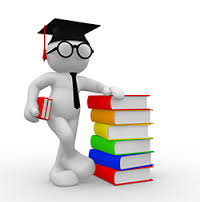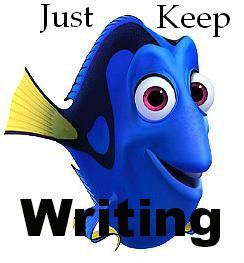The APA style manual is more than just a documentation guide for sources in the 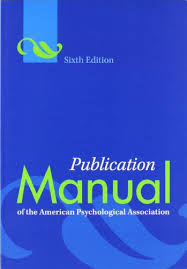 reference list or in text citations. Of course, those aspects are covered in great detail; however, the manual also addresses organization and has a fairly comprehensive section on the variety of elements that should be included in a research paper or study (Chapter 2: Manuscript Structure and Content, pp. 21-40). In fact, these elements are closely aligned to the elements used in the Fresno State thesis template created for theses in the Social and Behavioral sciences (http://bit.ly/ThesisTemplates). In addition, when reading an article in a peer-reviewed journal in these scientific fields, these elements are easily identified. When working on your own APA style research paper or study, you will want to make sure to include the following elements.
reference list or in text citations. Of course, those aspects are covered in great detail; however, the manual also addresses organization and has a fairly comprehensive section on the variety of elements that should be included in a research paper or study (Chapter 2: Manuscript Structure and Content, pp. 21-40). In fact, these elements are closely aligned to the elements used in the Fresno State thesis template created for theses in the Social and Behavioral sciences (http://bit.ly/ThesisTemplates). In addition, when reading an article in a peer-reviewed journal in these scientific fields, these elements are easily identified. When working on your own APA style research paper or study, you will want to make sure to include the following elements.
- Title Page – If you have been asked to submit an APA paper, you need to start with the title page. Take note – this is not a chance to get fancy and exercise your creative side. The title page accommodates just a few simple elements:
- Title
- Author Name
- Institution Name
Now APA also has advice on what to include in the actual title. The title should encompass the main idea of your paper and it should be able to stand alone, giving the reader an understanding of your topic. APA’s recommended maximum title length is 12 words (APA, p. 23). Finally, avoid using abbreviations in the title.
- Abstract – The abstract should represent a comprehensive summary of your paper. Remember – it should be comprehensive AND concise. Most journals indicate a maximum word count for the abstract; this may be between 150 to 250 words (APA, p. 27). Make sure the information is accurate, objective, and informative. You will probably want to mention the background and the problem statement and information about your methodology, results, and conclusions. The abstract should give the reader enough information about the paper/study so they can get a fairly clear idea of what it is about. Think about this as the elevator pitch, or the big picture. In the abstract, you want to make every word count.
- Introduction – Why is my study/work important?
In this section you will introduce and describe the issue or problem (e.g., Why do so many children develop asthma in the Central Valley of California?). This would be accompanied with some background information, which might include some large scale statistical data related to the issue. It is also important to show how this problem or issue is significant (Why does it matter?). Any hypothesis(es) or research questions are also included here. You may also want to discuss any related theoretical framework in this section. The definition of terms can be found here as well.
Note: Working on a Fresno State thesis? This element makes up chapter 1.
- Literature Review – How is my work related to others?
This section discusses relevant literature and research related to your topic. Here are some important things to keep in mind:
- use primary sources and steer clear of secondary sources. Only use secondary sources when the primary source is out of print, cannot be accessed, or has not been translated into English (APA, p. 178).
- Include seminal work(s) – this represents foundational research that others in the conversation surrounding your topic are referencing.
- The literature review is a place where you describe previous studies and then connect them in a logical way. No annotated bibliographies here! It seems difficult to know how to exert your voice in this process because you are focused on the research of others; however, you still have control of the structure and organization of this section. In addition, evaluative comments can be inserted as you tie studies together and point out strengths and weaknesses.
- This is also where you will want to indicate any gaps in literature and show how your study is creating new knowledge.
Note: Working on a Fresno State thesis? This element makes up chapter 2. In the APA manual, the introduction and the lit review are usually combined and may be labeled introduction. For the scope of a thesis, the two elements are given their own chapters as a thesis does not have the same word count restrictions as an article being submitted to a peer-reviewed journal.
- Methodology: What did I do?
Think of the methodology section of an APA paper as a blueprint. Future researchers could read through this section and replicate what you did. The methodology should include details about the variables (both dependent and independent) and the research design (e.g., qualitative, quantitative, or mixed methods, sampling methods). The sample itself needs to be described: size and demographics. Include those details that are pertinent to your results (e.g., gender, age if that is what you are tracking in your results). This section also needs to address instrumentation type and procedures. Did you conduct a survey, interviews, focus groups, closed- or open-ended questions, questions on a Likert scale etc.? Finally, include descriptions of data analysis techniques you used (e.g., T-test, Chi Square, ANOVA). This is not where you indicate the results garnished from completing the analyses; rather, this is where you let the reader know what tests you used and why.
Note: Working on a Fresno State thesis? This element will be your chapter 3. If you are required to participate in a preliminary defense of a thesis, then chapters 1 through 3 are usually used to create the content. For the preliminary defense, the study is presented as a proposal; hence, the language used in the methodology is in the future tense. For the purposes of the final write-up (thesis submission and final defense) this is all changed to the past tense.
- Results: What did I find?
This section includes a summarized description of your study’s results based on what you collected. This is where you present the relevant results including those that might be unexpected. You have run your data analyses, so you will be including relevant information such as measures of variability, effect sizes, and confidence intervals. Don’t forget to mention any missing data. Tables and figures are effective ways to highlight results in a visual format. Just remember, the results section of your paper or study is not where you include any interpretation.
Note: Working on a Fresno State thesis? This element will make up your chapter 4.
- Discussion/Conclusion: What does it mean?
The discussion section is where you move beyond presentation and get down to the interpretation of the findings! Don’t forget to tie these findings to your hypotheses and research questions. In addition, you need to make your voice heard in your topic’s conversation – make sure you relate your findings to the findings of other researchers mentioned in your literature review. You will also want to address any limitations and make recommendations for future research. Where does the work go from here in the ongoing conversation about your topic?
Note: Working on a Fresno State thesis? This element will make up your chapter 5.
- References:
The reference section fulfills two main purposes. First, you are giving credit to those sources you used and thus minimizing the chance of plagiarism. Second, this list provides the reader with a way to locate your sources in case they want to explore any related idea further. When creating an APA reference list, make sure you follow APA guidelines, which include ordering sources alphabetically and using a hanging indent. In addition, the lines are double-spaced throughout.
Note: Working on a Fresno State thesis…or not: always make sure your sources are found in both the text of the manuscript and the reference list. If you cite sources in the text, they need to show up in the reference list. If you include sources in your reference list, they need to be cited within the text.
- Appendices
The appendices are found at the very end of your document. Supplementary material such as copyright permission letters, email communications related to your study, interview questions and/or transcripts, survey templates etc. may be included in the appendices. This is all important information which is related to your study; however, if it is placed in the body of the manuscript, it might be distracting to the reader. It might be better to reference the material within the manuscript (see Appendix D), so the reader can look at this additional information at a time of their choosing
Note: Working on a Fresno State thesis…or not: make sure the order of your appendices at the end of your document match the order they appear in the document itself. In other words, the very first appendix referenced in the document will be Appendix A followed by Appendix B, Appendix C, and so on.
These nine elements make up the basic content of an APA formatted research study and are closely aligned with a thesis in the Behavioral or Social sciences. Keep this structure in mind as you read journal articles and as you create new knowledge through your own research.
Check out this infographic: Elements of a Research Paper
A special “Thank You” to staff member Debbie Neufeld for this ongoing series. 

 It is important to educate our students on how to identify plagiarism, how to avoid it, and how to cite correctly. In fact, our librarians at California State University Fresno’s Henry Madden Library, offer workshops on “Avoiding Plagiarism” and our Grammar for Grad Students Series has also included a session on plagiarism.
It is important to educate our students on how to identify plagiarism, how to avoid it, and how to cite correctly. In fact, our librarians at California State University Fresno’s Henry Madden Library, offer workshops on “Avoiding Plagiarism” and our Grammar for Grad Students Series has also included a session on plagiarism. the ideas embodied in the research and know how to cite appropriately. This requires much more than substituting a word here and there or re-ordering a sentence. If a student has taken the time to research and understand the topic, they will be able to communicate the issues embodied in the topic in their own words.
the ideas embodied in the research and know how to cite appropriately. This requires much more than substituting a word here and there or re-ordering a sentence. If a student has taken the time to research and understand the topic, they will be able to communicate the issues embodied in the topic in their own words.

 searching their biological instincts to find a way to survive the experience. They also trust that, if they fail, they will be saved. Throw the student in, but be there to save them from drowning. Grammar, logical continuity, syntax, research, outlining, the drafting process, and other processes have been a part of every graduate student’s life at some point—this is their pool of water. They may not have the vocabulary to explain these things and they may not know how to explain the functions of language on the page—they may not know that they already know how to swim—but they have been exposed enough to paddle their way to safety.
searching their biological instincts to find a way to survive the experience. They also trust that, if they fail, they will be saved. Throw the student in, but be there to save them from drowning. Grammar, logical continuity, syntax, research, outlining, the drafting process, and other processes have been a part of every graduate student’s life at some point—this is their pool of water. They may not have the vocabulary to explain these things and they may not know how to explain the functions of language on the page—they may not know that they already know how to swim—but they have been exposed enough to paddle their way to safety. Students often get caught up in sounding scholarly. When encountering this, try to ask them, “How would you write this sentence?” Often, after they have let go of that Jiminy Cricket on their shoulder who is telling them that they need to write to a scholarly audience, they dismantle the facade and rewrite the sentence in their own authoritative voice. These students haven’t quite learned that they have already become the scholars and they definitely do not trust themselves. How do we show them how to trust themselves? We ask them to explain the subject in their own words. We should listen, ask, and then listen again. They have the tools and a constructivist approach would assume that they would find their way. A consultant should say “there is the pool,” throw them, in and be the “life jacket” in case the student flounders. Nine times out of 10, the student will find their way toward a clear, scholarly, voice that belongs to them.
Students often get caught up in sounding scholarly. When encountering this, try to ask them, “How would you write this sentence?” Often, after they have let go of that Jiminy Cricket on their shoulder who is telling them that they need to write to a scholarly audience, they dismantle the facade and rewrite the sentence in their own authoritative voice. These students haven’t quite learned that they have already become the scholars and they definitely do not trust themselves. How do we show them how to trust themselves? We ask them to explain the subject in their own words. We should listen, ask, and then listen again. They have the tools and a constructivist approach would assume that they would find their way. A consultant should say “there is the pool,” throw them, in and be the “life jacket” in case the student flounders. Nine times out of 10, the student will find their way toward a clear, scholarly, voice that belongs to them.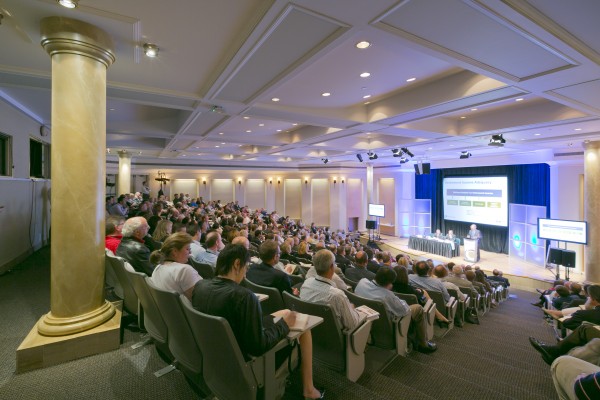 Academic conferences in your field of study are valuable (and often initially intimidating) scholarly experiences. Since I am preparing to attend a conference next month, I’ve compiled a series of tips for applying to, getting to, and presenting at graduate and undergraduate conferences.
Academic conferences in your field of study are valuable (and often initially intimidating) scholarly experiences. Since I am preparing to attend a conference next month, I’ve compiled a series of tips for applying to, getting to, and presenting at graduate and undergraduate conferences.

 Conference Etiquette
Conference Etiquette This week I am going to feature two of our amazing writing consultants and their thoughts on the best use of time and managing life during the writing process. We are losing Katy as she is moving on to a job in her field of study and expertise, but Scott will be back to discuss his ideas further in a continuing series. First up, Katy Hogue:
This week I am going to feature two of our amazing writing consultants and their thoughts on the best use of time and managing life during the writing process. We are losing Katy as she is moving on to a job in her field of study and expertise, but Scott will be back to discuss his ideas further in a continuing series. First up, Katy Hogue: 
 By Scott Trippel, Graduate Writing Consultant
By Scott Trippel, Graduate Writing Consultant spending 3 hours in the middle of the night, try sleeping, wake up refreshed, and get your paper done in 1 hour. I found a lot of advice about sleep hygiene online, one of the best comes from the University of Michigan Health System. You can find it here.
spending 3 hours in the middle of the night, try sleeping, wake up refreshed, and get your paper done in 1 hour. I found a lot of advice about sleep hygiene online, one of the best comes from the University of Michigan Health System. You can find it here.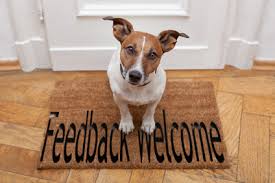
 A great deal of students we see at the Graduate Writing Studio are completing degrees in psychology, nursing, and physical therapy. While health-centric disciplines may not be popularly associated with writing, the GWS can offer guidance on literature reviews, case reports, evidence-based papers, and any other written projects. In a 2013 evaluation of its own writing center, the Medical University of South Carolina found “that nearly all students who used the Center agreed (and most strongly agreed) that it met their needs” and use of the Center was “associated with a better written product” (Ariail et al. 132).
A great deal of students we see at the Graduate Writing Studio are completing degrees in psychology, nursing, and physical therapy. While health-centric disciplines may not be popularly associated with writing, the GWS can offer guidance on literature reviews, case reports, evidence-based papers, and any other written projects. In a 2013 evaluation of its own writing center, the Medical University of South Carolina found “that nearly all students who used the Center agreed (and most strongly agreed) that it met their needs” and use of the Center was “associated with a better written product” (Ariail et al. 132). The quiet is deafening. Students have gone home for the holiday break and the Graduate Writing Studio is, for the most part, empty. It is a time for reflection and looking toward next semester. Here are some things to look forward to:
The quiet is deafening. Students have gone home for the holiday break and the Graduate Writing Studio is, for the most part, empty. It is a time for reflection and looking toward next semester. Here are some things to look forward to:





